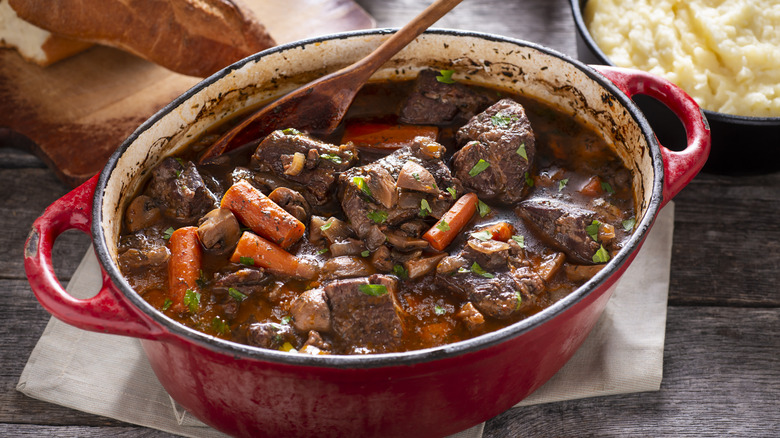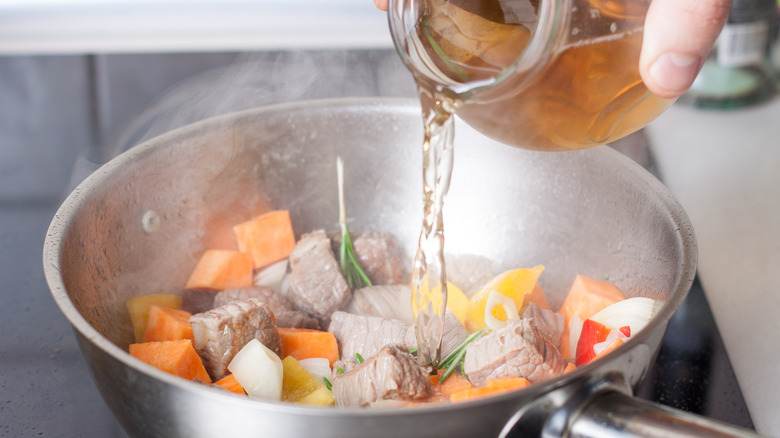The Biggest Mistake To Avoid When Seasoning Stew
Stew is a great meal for holidays or dinner parties because large portions can be slow-cooked in a single pot, but this also creates added pressure to season it perfectly and avoid recipe blunders. As the beef breaks down and the vegetables you put in your stew become soft, a rich depth of flavor develops. However, the cooking process isn't complete without strategically salting your stew.
A major misunderstanding when it comes to salting food is that quantity is all that matters. Don't dump all the salt in at the end. That's one of the mistakes everyone makes when cooking beef stew. In reality, the frequency with which you salt your stew is crucial. While the ingredients may seem simple, the science of salting a straightforward dish can often get overlooked. However, the savory flavor of stew hinges on adding salt throughout the cooking process.
Salt requires time to spread throughout the broth and infuse the meat and veggies. Dan Souza, editor-in-chief of Cooks Illustrated, explained via Instagram that adding the same amount of salt to identical stews but at different times resulted in one overly salted bowl and another perfectly seasoned, well-balanced one.
There's a strategy for salting your stew
Interestingly, Souza noted that "adding salt early and often won't result in using less salt overall," but it will provide a more nuanced flavor throughout your dish. Food writer Jeffrey Steingarten told The Guardian that salt added to a dish once it's served "becomes the dominant flavor [because it] doesn't bind the other tastes together." Therefore, salting throughout the cooking process is ideal. However, if you forget to salt your stew intermittently, avoid adding large amounts to the final product, as that flavor will linger. Instead, add small sprinkles and adjust based on your palette.
Interestingly, the term "season to taste" is subjective and can confuse novice cooks. One Reddit user even asked about this, noting that using the "bare minimum" of salt and pepper left their beef stew bland. Another commenter said, "Season to taste means 'add salt and pepper and taste the food. Repeat until delicious.'" Another suggested incorporating a sodium-rich sauce like Worcestershire in the broth. Soy sauce is another ingredient you should try if your stew needs more flavor.
Understandably, it can seem daunting to prepare a meal knowing that a simple seasoning mistake can mess it up. However, from searing the beef to sauteing the vegetables and adding the broth, focusing on incorporating salt at each stage of the cooking process is helpful. This technique provides a deliciously seasoned base broth and accentuates the savory notes in the meat and veggies.

